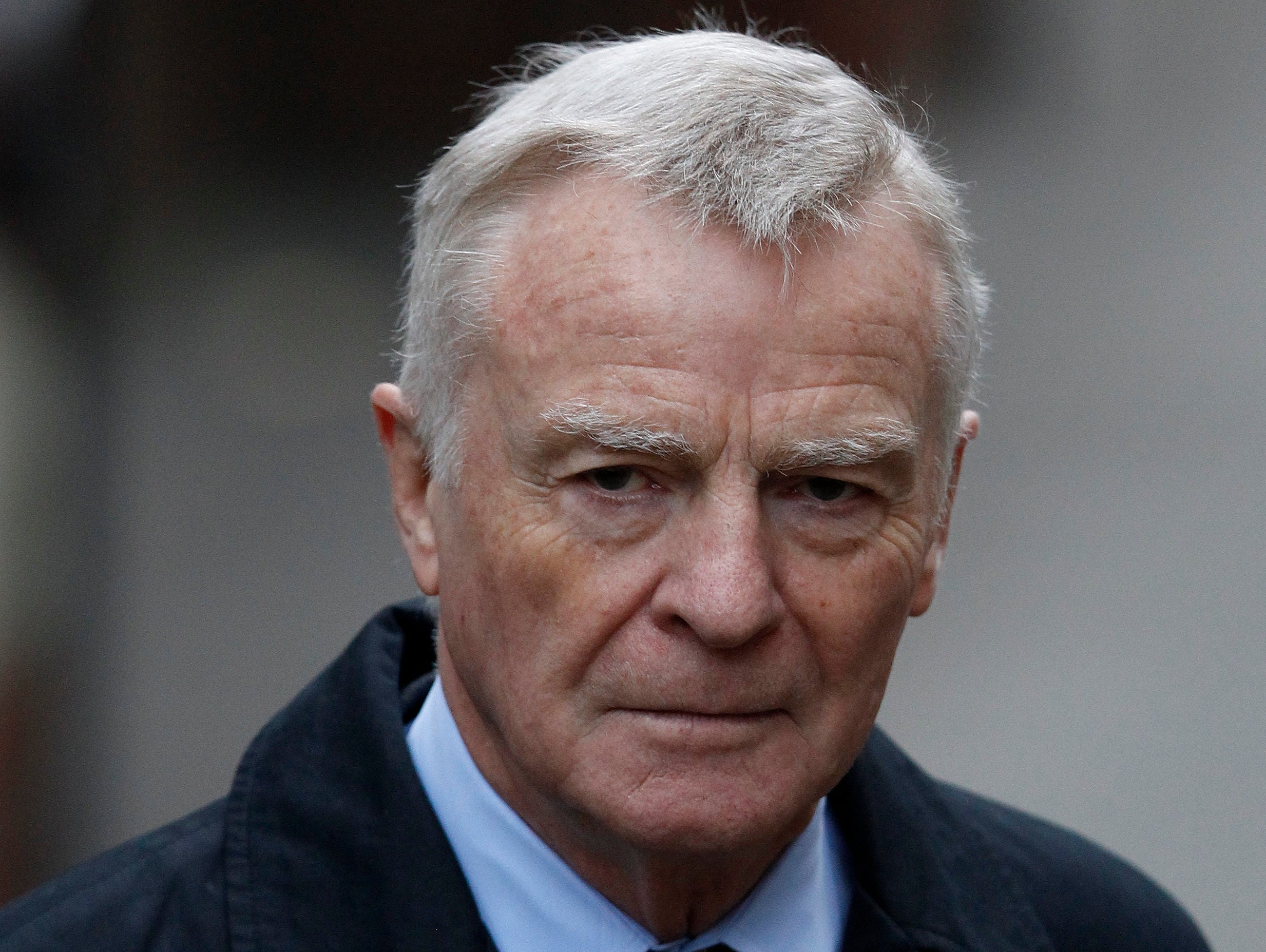
Goodbye Max Mosley, the motorsport executive who helped bring Rupert Murdoch to his knees and had a huge impact on the tabloid media.
Mosley was a relatively obscure figure to most until his sexual proclivities were exposed by the News of the World in 2008.
At the time the News of the World thought the story was an absolute slam dunk and appeared under the headline: “F1 boss has sick Nazi orgy with 5 hookers”.
The paper paid one of the dominatrices to carry a hidden camera and even went as far as to publish footage on its website.
In those days papers like the News of the World cared less about privacy than they did about libel, as privacy damages tended to be tiny and very few sued (because, as Mosley found out, even if you won – you lost).
Mosley’s High Court action against the paper meant all the sordid details were aired again over two weeks. Even though he was awarded record damages of £60,000 plus costs of £450,000 he said he was still left severely out of pocket.
But he succeeded in changing the landscape of privacy in the UK.
Put simply, he established that what a married man did with paid dominatrices in a Chelsea basement was his business alone. The fact he was committing adultery and betraying his wife did not cut it.
After this, for private sexual matters to be exposed by the press there had to be a wider public interest defence.
The NotW thought they had the public interest nailed on with the Nazi angle. But unfortunately, they didn’t translate the video. The judge decided that though the orgy participants were dressed in German military uniforms, and speaking German, there was no Nazi angle.
Mosley appeared to devote much of the rest of his life to fighting the tabloids and seeking media reform. We set out a potted history of his campaign here.
It is doubtful that the Press Complaints Commission would have been abolished and its replacement, IPSO, created without his involvement.
He provided much of the financial muscle behind the campaign for press reform and was its most forthright public advocate.
He also provided crucial assistance to Nick Davies of The Guardian in helping him to uncover the hacking scandal which brought down the News of the World and set in train the Leveson report, abolition of the PCC, creation of IPSO and nearly created a compulsory system of statute-backed press regulation.
Mosley recruited private investigator Glenn Mulcaire as a security consultant and effectively paid him to share what he knew about phone-hacking at the News of the World with Davies.
In his book, Hack Attack, Davies says Mosley told him he was moving his vast fortune from an offshore trust in Liechtenstein onshore to turn it into a fighting fund for his campaign against the tabloid press.
He paid for lawyer Mark Lewis to successfully sue the PCC for libel after its chairwoman Lady Buscombe said he misled parliament about the number of voicemails intercepted by the News of the World. He also underwrote the legal costs of numerous hacking victims.
Via a family charity, the Alexander Mosley Charitable Trust, he has entirely underwritten the £1m a year cost of rival press regulator Impress.
Seven years on from the launch of IPSO, and then Impress, it is difficult to say Mosley has had much lasting impact on the press regulation landscape.
The regulator he funds, Impress, is largely irrelevant because while tougher on paper than IPSO, no tabloids are signed up to it.
It is difficult to discern much difference between IPSO and the old PCC in practice. It has the power to compel front-page corrections, which it has used. But it has never held an investigation into serious wrongdoing or levied a fine.
IPSO offers low-cost compulsory arbitration for settling libel and privacy complaints which should be a significant deterrent and offer access to justice for the less well off. But no-one has ever used it.
The tabloids are, however, immeasurably better behaved today than they were pre the Leveson report and Mosley can take much of the credit for this change.
News UK and Reach have spent hundreds of millions on legal payouts to hacking victims.
All the tabloids know they really are in the last-chance saloon when it comes to tougher statute-backed press regulation, which remains the stroke of a pen away.
Huge legal penalties and the threat of tougher regulation are a powerful deterrent and ensure a far more compliant tabloid culture today.
Mosley’s success at shifting the goalposts on privacy in the UK is another lasting legacy. Without him, it is unlikely that Meghan and Harry would have taken on the Mail on Sunday and won.
Today, privacy is the main legal concern of tabloid publishers (not libel) and the Sunday tabloids in particular are unrecognisable compared to pre-2008. The kiss-and-tell is largely dead – and Mosley killed it.
Email pged@pressgazette.co.uk to point out mistakes, provide story tips or send in a letter for publication on our "Letters Page" blog
